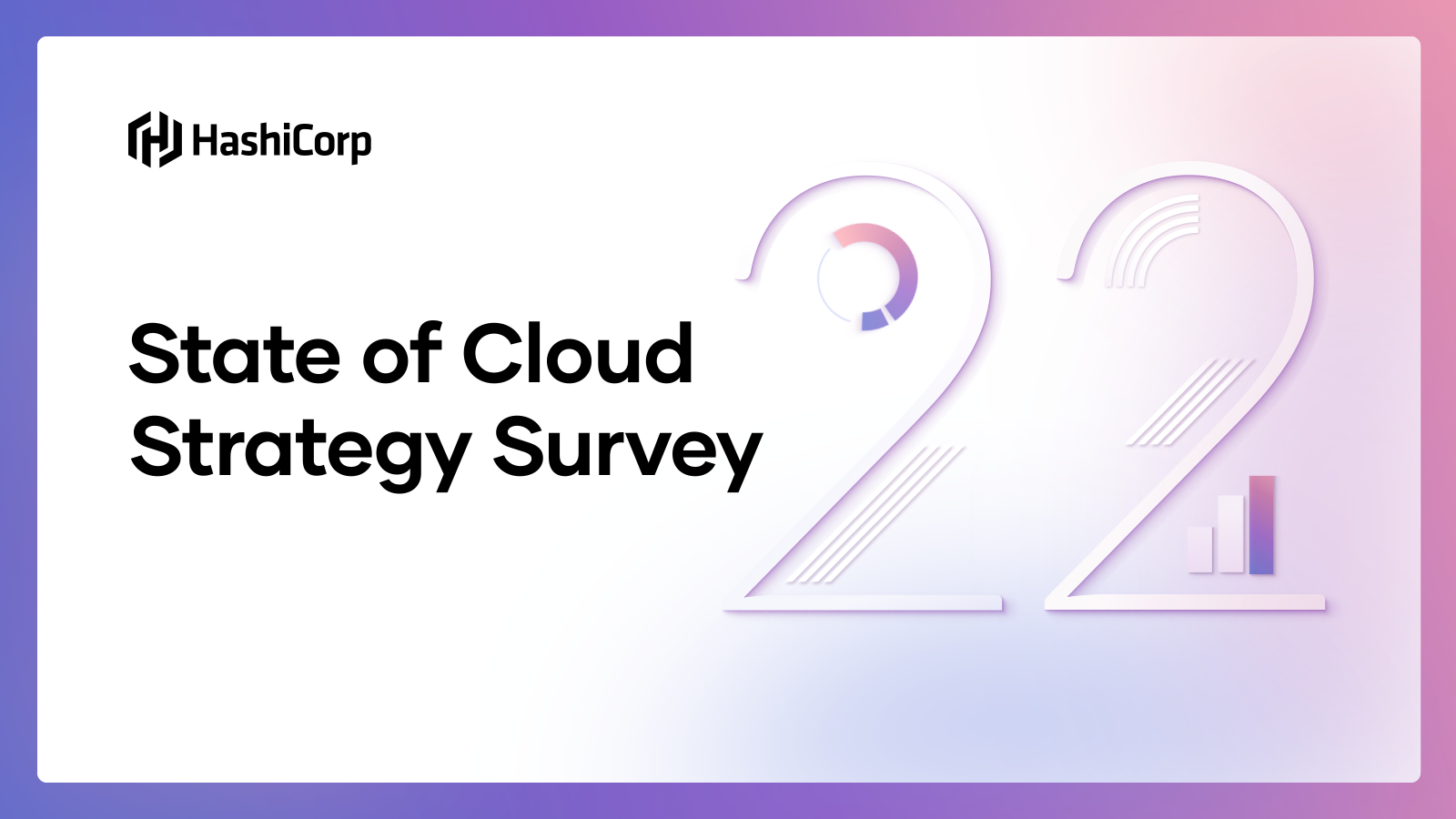Enterprises are facing an ongoing shortage of cloud skills, and it’s driving many organizations to create cloud platform teams and invest in automated tooling. That’s one of the key findings in the 2022 HashiCorp State of Cloud Strategy Survey, based on research commissioned by HashiCorp and conducted by Forrester Consulting.
»Skills Shortage Tops List of Barriers to Operationalizing Multi-Cloud
When our second annual cloud strategy survey asked which factors complicate their organization’s ability to operationalize multi-cloud, skills shortages were the most popular choice, selected by 41% of respondents. Lack of training was also a top choice, selected by 33% of respondents.
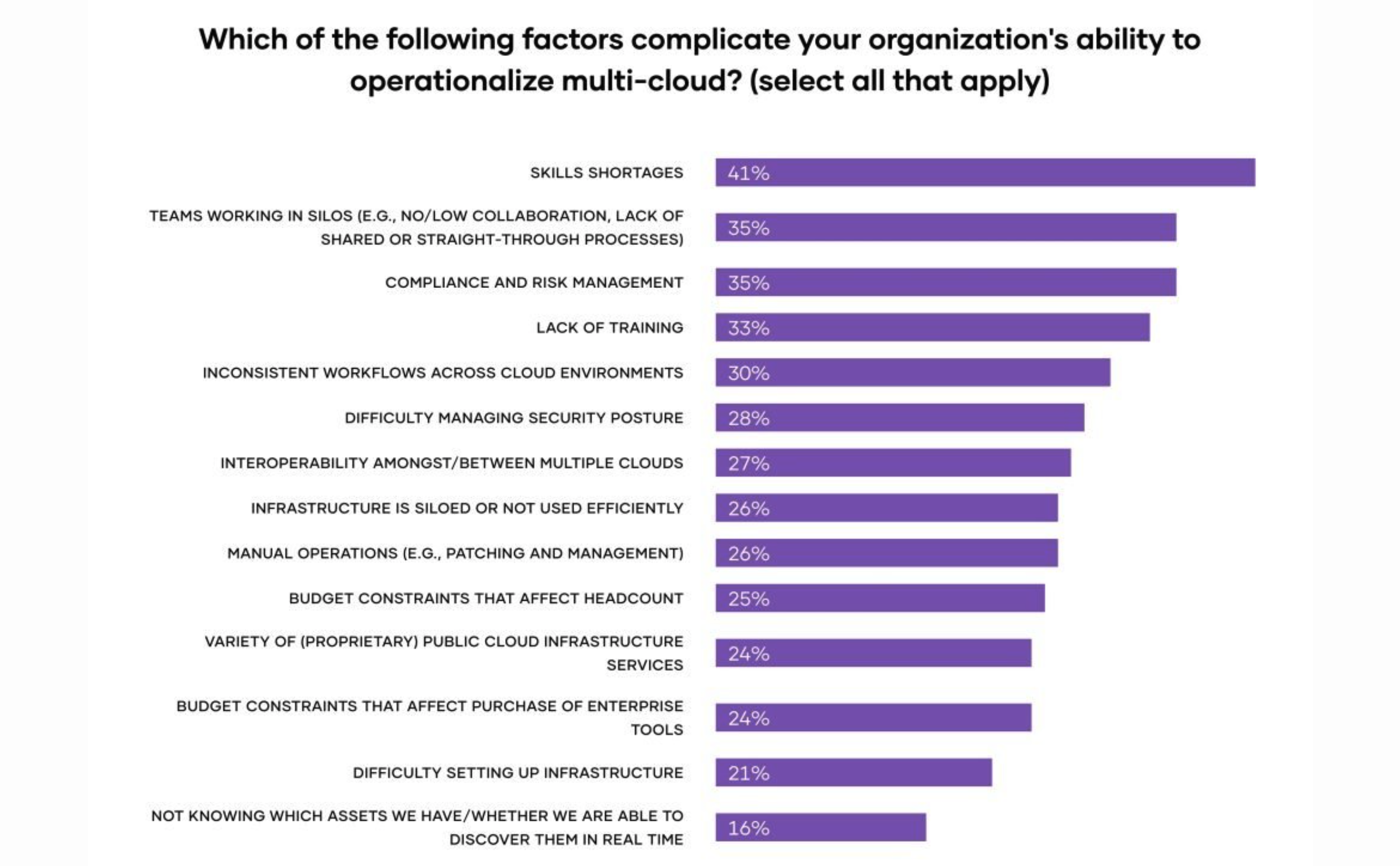
However, that’s only the beginning. A whopping 94% of respondents said they had avoidable cloud spending, and lack of needed skills was the third most common reason for that cloud waste, cited by almost half (47%) of respondents. Similarly, having the proper staffing and skill levels was cited by 82% percent of respondents as important (41%) or very important (41%) to determining the success of their organization’s cloud strategy — the fourth most common choice.
»Platform Teams Leverage the Best Engineers to Address Skills Issues
Despite all of these concerns, many respondents are finding an effective way to address these issues on their path to multi-cloud success: using centralized cloud platform teams.
Platform teams — groups that consolidate and standardize cloud infrastructure for an organization or an entire company — are designed to leverage the skills and expertise of an enterprise’s best engineers.
Given the impact of skills shortages revealed in the survey, it should be no surprise that 86% of respondents said they relied on a centralized organizational group or function such as a cloud platform team or Cloud Center of Excellence (CCoE).
Notably, organizations are turning to platform teams to create, distribute and enforce best practices and common tools for a wide variety of tasks. In fact, at least three quarters of respondents picked all 15 functions provided as survey choices:
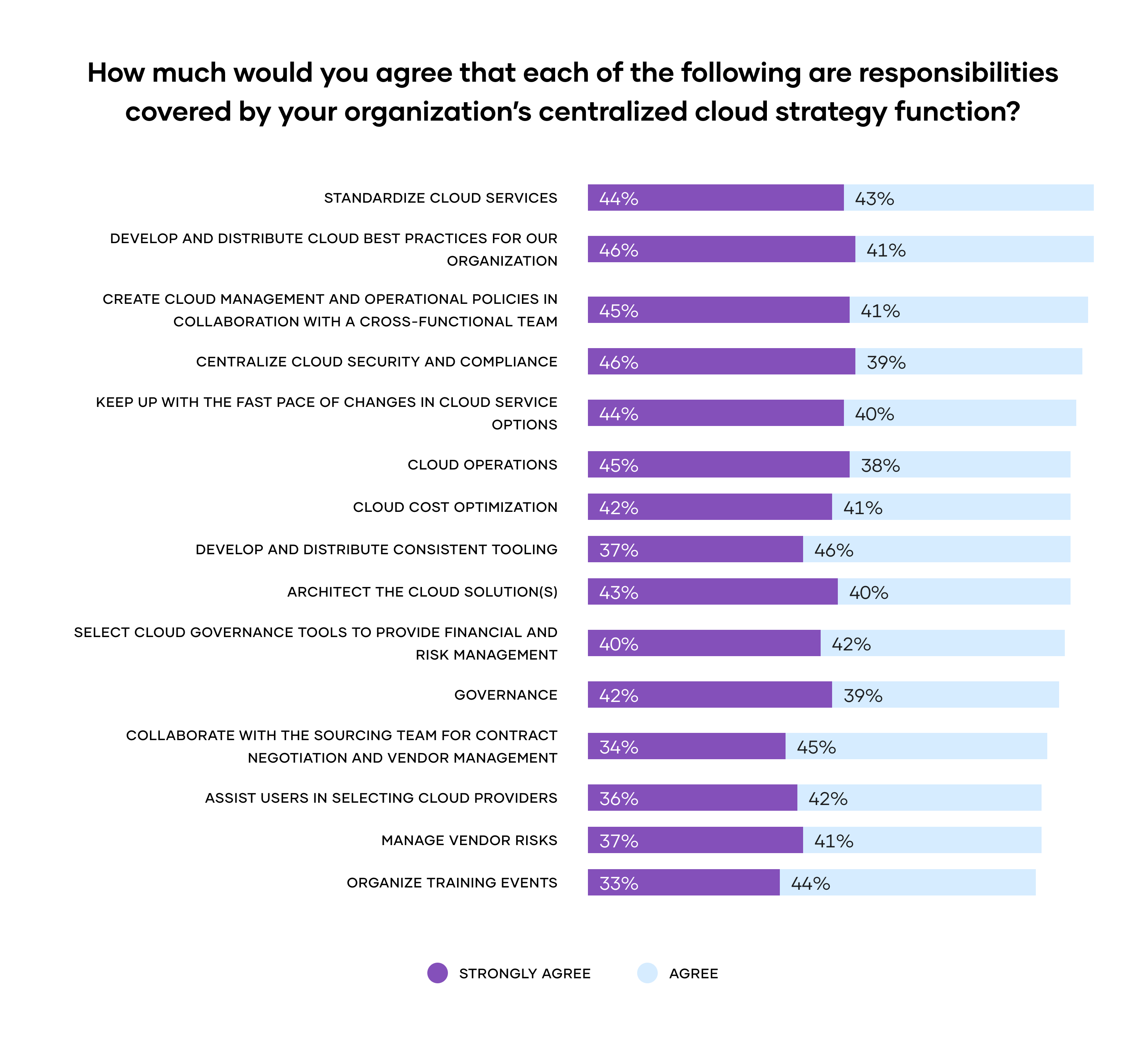
»Automated Tools to the Multi-Cloud Rescue
Even the best platform team can only do so much themselves, however. Organizations struggling with cloud skills shortages say they also need automated tools to help make their hard-to-find engineering talent productive. In fact, 89% of respondents said automation tools were important or extremely important to operationalize their multi-cloud infrastructure. Only 1% said these tools were not important.
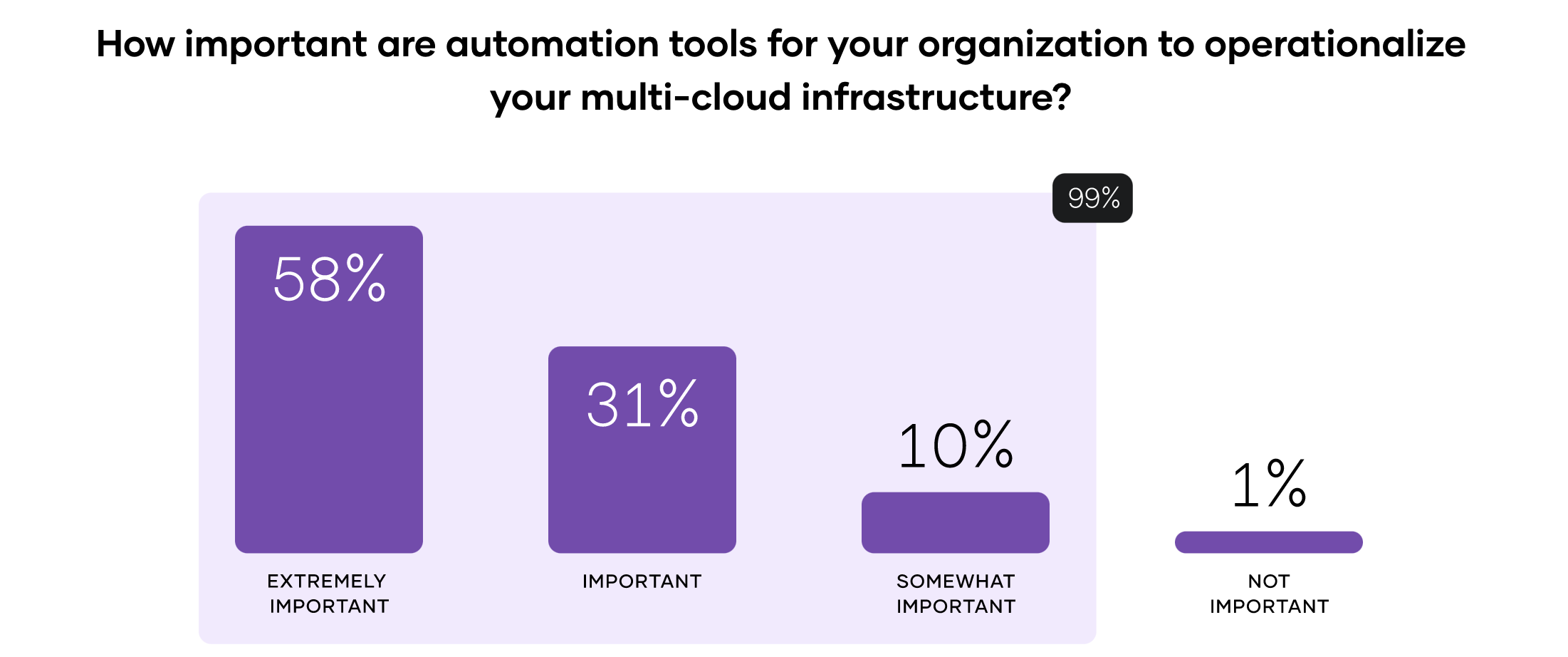
According to the survey results, consistent and automated tooling leads to more flexible IT infrastructure (47%), improved security and governance (46%), better utilization of cloud resources (43%), and faster response to IT issues and events (42%).
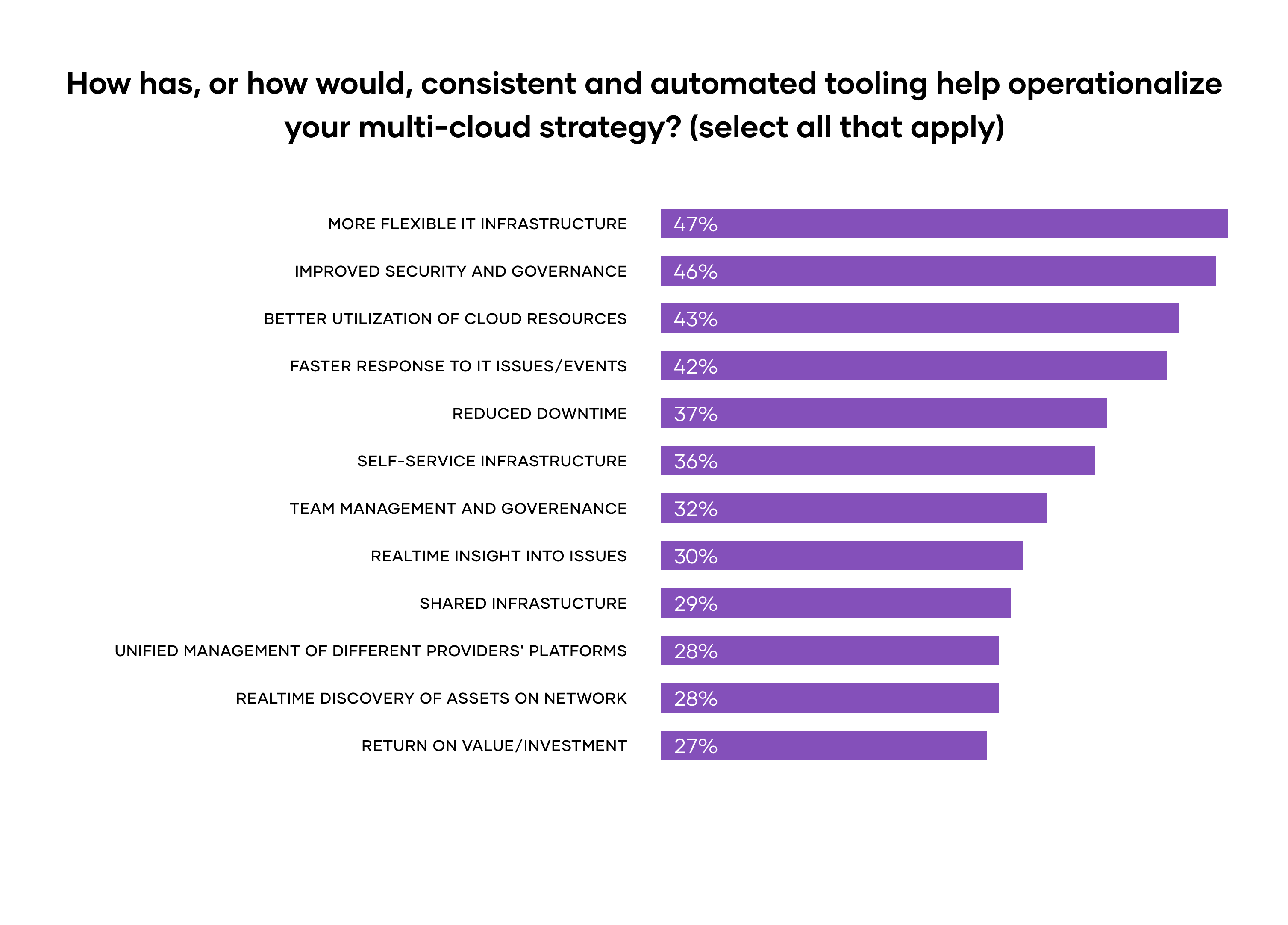
The top benefits those tools have already helped provide include scalability (49%), infrastructure provisioning/infrastructure as code (42%) and cost optimization (40%). In the next year, respondents expect these tools to help with cost optimization (42%), scalability (39%), and improved developer productivity (37%).
Even more telling, respondents say that automated tools provide important benefits across each of the four critical layers of cloud infrastructure — infrastructure, security, networking, and application deployment. These include important capabilities like automated workflows for operations, dynamic and automated service networking, centralized secrets management, and providing flexible deployment options.
»Check out the 2022 HashiCorp State of Cloud Strategy Survey
To gather the information presented here, HashiCorp commissioned Forrester Consulting to survey more than 1,000 technology practitioners and decision-makers in companies from a variety of industries around the world with more than 1,000 employees. You can explore the full results of the survey on our interactive State of Cloud Strategy Survey microsite, where you can also download Forrester’s “Unlocking Multi-Cloud’s Operational Potential” study, which presents the firm’s key survey findings, analysis, and recommendations for enterprises.
Finally, this post is just one of several we’ve published to highlight key takeaways from the survey. You can also find deep dives into such topics as cloud waste, security in a multi-cloud world, the rise of platform teams, and more.
Note: A version of this blog post was originally published on The New Stack.

